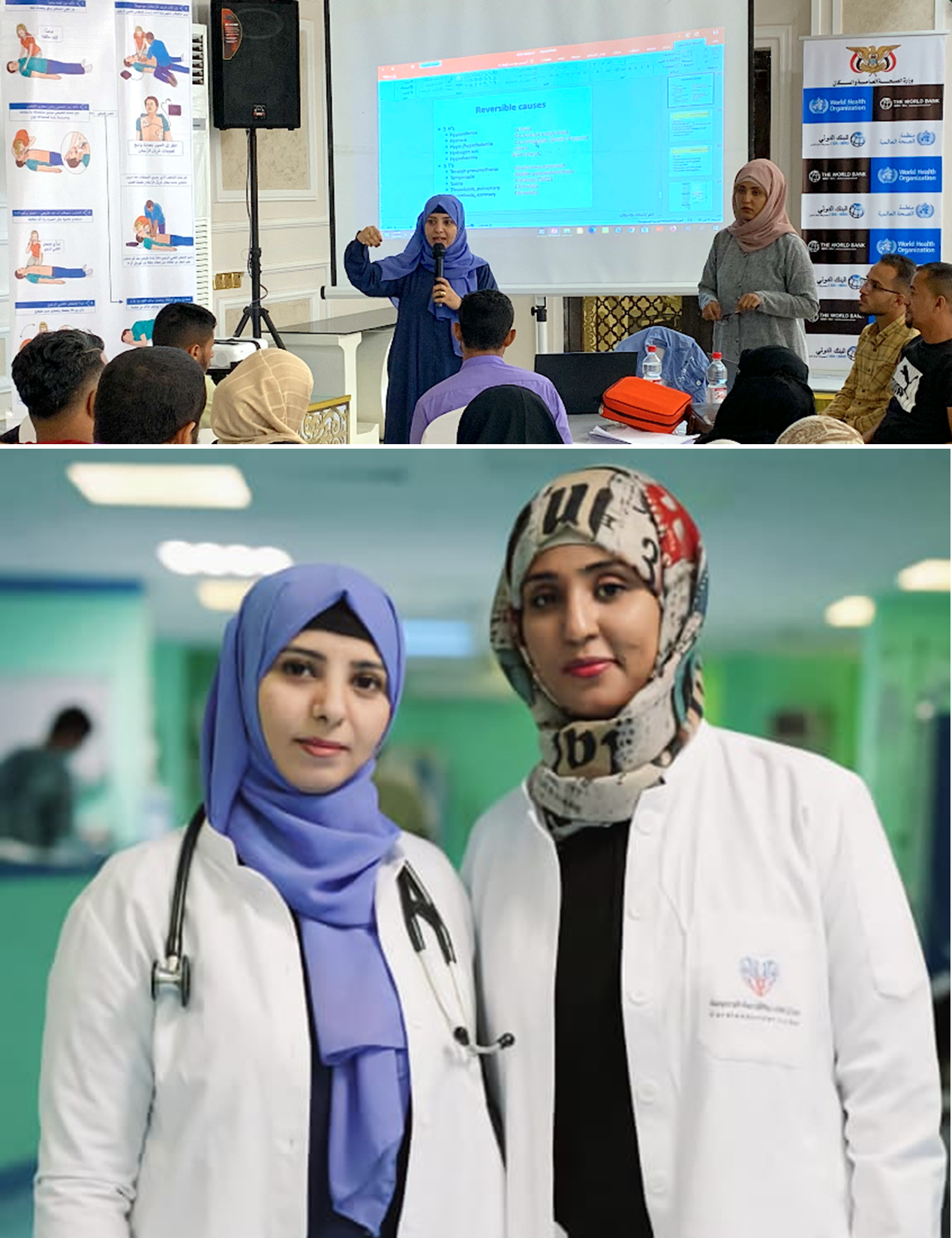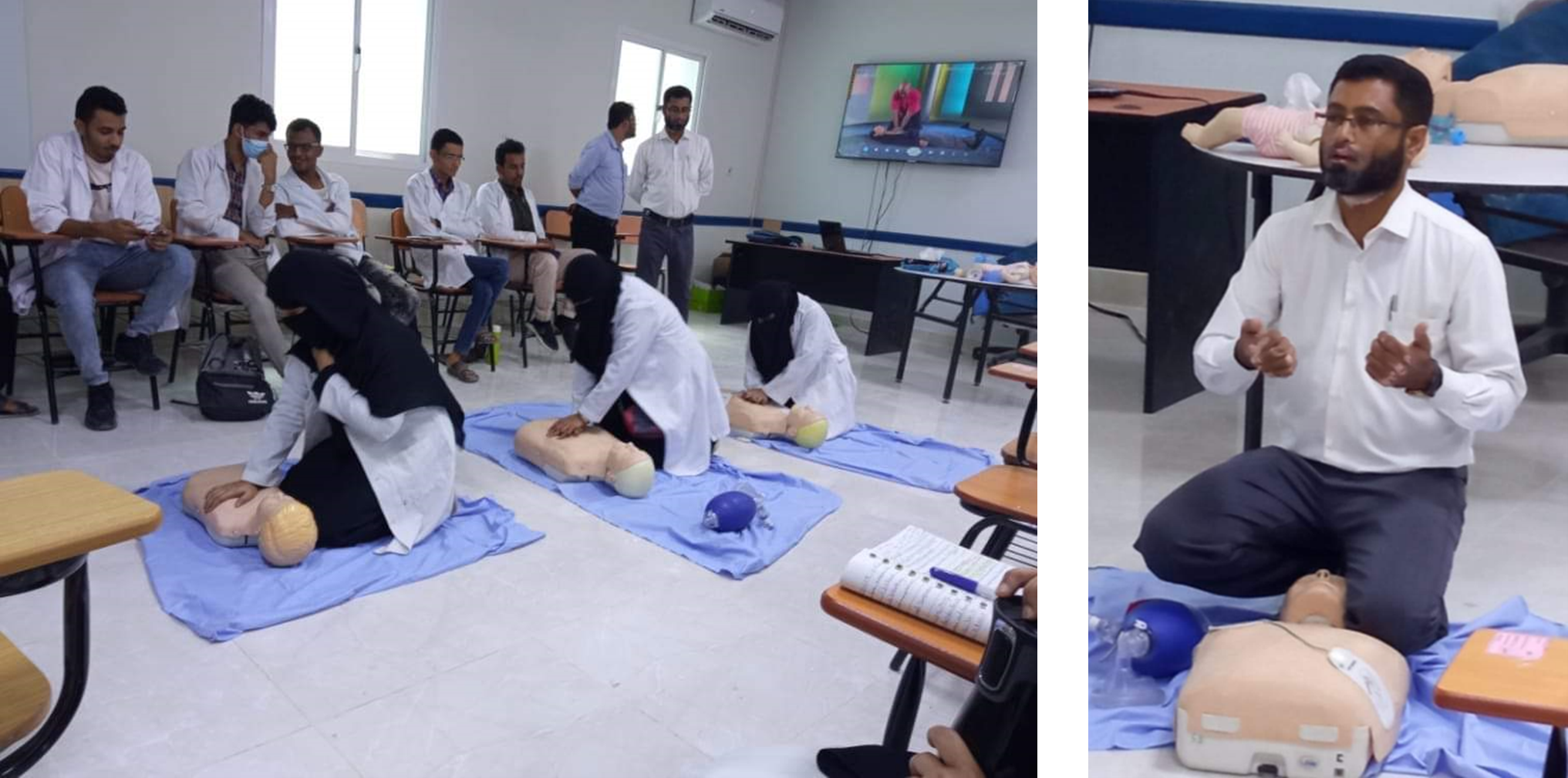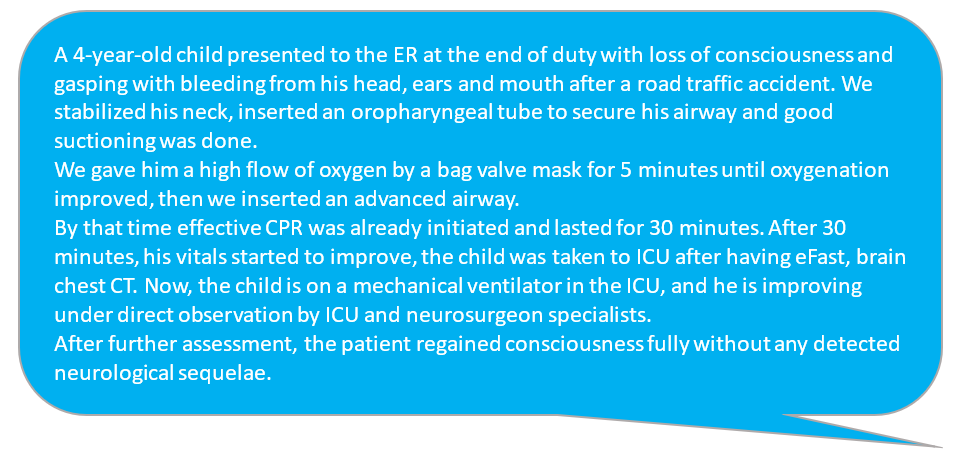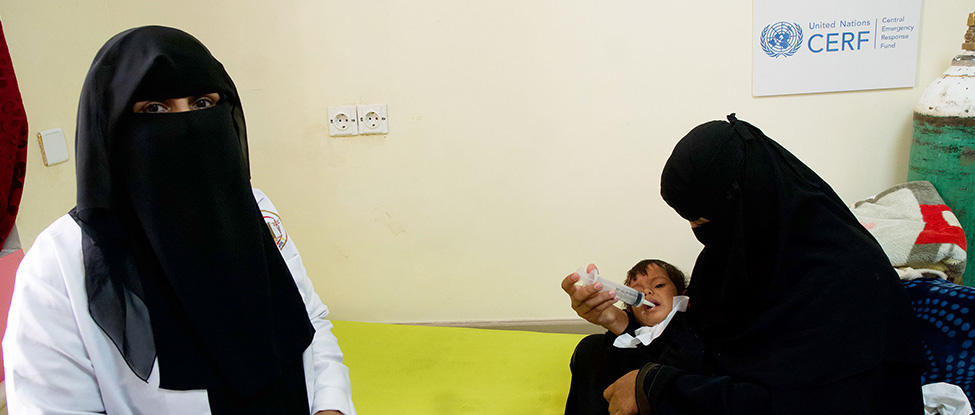Trainees take immediate, proactive steps to cascade life-saving skills

Taizz | Sayoun, 22 November 2022 – Participants from WHO’s recent basic and advanced life support trainings in Yemen are taking matters into their own hands to rollout these lifesaving skills to their peers. Among the more than 1200 health workers trained, below are some success stories of health workers playing critical roles in improving delivery of lifesaving care for the Yemeni people. The training was conducted with the World Bank’s support via the Yemen COVID-19 Response Project (YCRP).
Dr Raef is working in the Al-Jamohoury Hospital Cardiac Centre and is a teacher at Taizz Faculty of Medicine and Health Sciences. She successfully completed the 9-week national critical care training and recently got an opportunity to train in basic life support and advanced cardiac life support courses (for the first time), under the supervision of master trainers.
When Dr Raef and her colleague Dr Zahra returned to their governorate, Taizz, they were thinking about how to promote knowledge and skills for a long-term future and sustainability for the next generations. They came up with 4 ways forward:
They convinced the management of Taizz Faculty of Medicine to embed basic life support and advanced cardiac life support into the main curriculum of the ICU and anesthesia module.
Dr Zhara started teaching the theoretical part of basic life support and advanced cardiac life support in Taiz Faculty of Medicine.
Dr Raef delivers the practical part in Al-Jamohoury Hospital Taizz halls and cardiac-ICU for fifth-grade medical students with minimum available tools.
They keep communicating with Taizz governorate health office towards procuring more resources for an effective educational process.
Dr Nabil participated in the basic life support training of trainers in Aden. He passed the exam aligned with international standards to be a basic life support provider and instructor. Dr Nabil used his skills and knowledge to conduct a basic life support provider course at Sayoun University in Hadramaut Governorate targeting medical college students. In doing so, he complied with international standards as much as possible in a low-resource setting. Dr Nabil will have the chance to be a co-facilitator in WHO Yemen’s basic life support rollout plan.

Related links
Enhancing basic and advanced life support skills among Yemen’s health workforce
Texts from the field: life-saving impacts of basic and advanced life support training in Yemen
Texts from the field: life-saving impacts of basic and advanced life support training in Yemen
15 December 2022 – The following text messages were received by WHO staff from trainers and participants within one month of completing basic and advanced life support training in the third quarter of 2022. The training was conducted with the World Bank’s support via the Yemen COVID-19 Response Project.
 |
 |
 |
 |
Related links
Enhancing basic and advanced life support skills among Yemen’s health workforce
Trainees take immediate proactive steps to cascade life-saving skills
Women at the forefront of Yemen's healthcare response to COVID-19

1 December 2022 – Dr Reem Tawfiq Ali Saeed is the director of the Al-Tawahi Health Center on the outskirts of Aden, in South Yemen. During her six months as the center’s director, Dr Saeed has already faced multiple difficulties in managing the needs of both patients and staff.
The support we receive from the World Health Organization and KSrelief [King Salman Humanitarian Aid and Relief Center] is extensive, and includes the provision of vaccines to fight the spread of COVID-19, said Dr Saeed.
Aiding Yemen’s children

21 November 2022 – Children under age five are among the most vulnerable of all Yemenis to the ravages of disease, food insecurity, unsafe water, and other ever-present threats to their survival.
Summer Mansour Hussein is the mother of five children. Her youngest, Malka, is extremely fortunate to have reached her first birthday after nearly succumbing to severe acute malnutrition (SAM) that stalks the infants and young children of Yemen’s IDP camps in league with outbreaks of deadly and debilitating communicable diseases.


